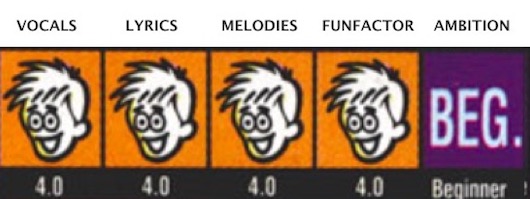 MUSIC
MUSIC In Which Something Happened When You Were A Kid
 Thursday, November 2, 2017 at 9:00AM
Thursday, November 2, 2017 at 9:00AM 
Nothing She Can't Do
by JANICE LEVENS

Stranger in the Alps
Phoebe Bridgers
producers Tony Berg and Ethan Gruska
September 22nd on Dead Oceans
"Jesus Christ, I'm so blue all the time, and that's just how I feel," Phoebe Bridgers admits on "Funeral." Disturbingly, this is one of the most uplifting tracks on her debut album Stranger in the Alps, a preciously perfect debut in the vein of collaborator Conor Oberst and a litany of folk predecessors who were nowhere near as good when they were 23.
But age is not anything but a number, and Phoebe herself is more than an amalgamation of moody ballads. Most prominent in Stranger in the Alps is Phoebe's hometown of Los Angeles, which lurks like the effete ghost on her album cover over the proceedings.
One reason that Phoebe's dark act isn't always convincing is that she is so articulate about her hard times. While she explains "I won't be home with you tonight" to Leonard Cohen on "Chelsea", you can tell that she is having fun in her melancholy. "No it's not important, they're just pretty words, my dear," she explains, "there is no distraction that can make me disappear." Thank God, for Stranger in the Alps is the most exciting debut this year.

Bridgers' low, gravelly voice works perfectly on this material, although it lacks the resonance we encounter when she duets with Conor Oberst on the restrained, "Would You Rather". Hearing another voice echo Phoebe's comes as an alarming surprise, and is probably mistake. Breaking this sonorous monologue is distracting to the real purpose of Stranger in the Alps, which is to present a devastatingly accurate portrait of a woman in a particular time and place without any self-censorship; Bridgers' honesty is like a dinosaur bone delicately preserved in amber. Oberst is the dinosaur.
On "Scott Street", Bridgers hones in her self-doubt on an exterior force. Her subdued anger is all the more sour for its contained aspect, as she sings, "There's helicopters over my head every night when I go to bed. Spending money and I earned it. When I'm lonely, that's when I'll burn it." Here the underlying sound recedes from her singular voice, whereas on "Georgia", one of her oldest songs, the piano is more prominent, as if she is now slightly embarrassed by the directness of lyrics like "if I had breathed you, will it kill me?"
In the album's showpiece, "Smoke Signals", Bridgers ascends to another level of lyrical sophistication.
I buried a hatchet, It's coming up lavender
The future's unwritten, the past is a corridor
I'm at the exit looking back through the hall
You are anonymous, I am a concrete wall
By the end of Stranger in the Alps, Phoebe seems to have encapsulated how she wants her music to appear in the folk catalogue: on the serious, hard side of the ledger. "You gave me $1500 to see your hypnotherapist," she says without the slightest hint of irony. Let us hope she stays that way.

Janice Levens is the music editor of This Recording.










































